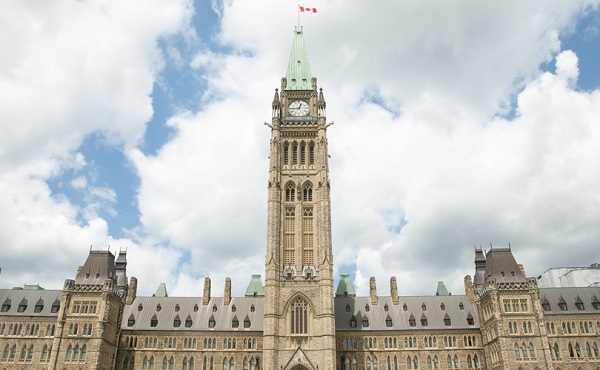National
Court challenge to Trudeau’s suspension of Parliament could result in early election

From LifeSiteNews
Canadians file legal challenge against Trudeau’s suspension of Parliament
Canadians have filed a legal challenge after Prime Minister Justin Trudeau suspended Parliament to give the Liberal Party time to select a new leader.
On January 7, the Justice Centre for Constitutional Freedoms (JCCF) announced it would provide lawyers to David MacKinnon and Aris Lavranos, two Canadian men challenging the legality of Trudeau’s prorogation of Parliament until March 24.
“The decision was not made in furtherance of Parliamentary business or the business of government, but in service of the interests of the LPC [Liberal Party of Canada],” the court application stated.
On Monday, Trudeau made the historic announcement that he was stepping down as Prime Minister and Liberal leader. He also revealed his plan to prorogue until March 24, blocking a non-confidence vote that would bring about an election.
During his speech, Trudeau lists the reasons for the suspension as first to “reset” Parliament and second to allow the Liberal Party time to select a new leader.
The legal challenge questioned why a prorogation is necessary and not a short recess, especially when all major political parties have promised to vote for a non-confidence motion that would trigger an election and the “reset” that Trudeau promised.
“No explanation was provided as to why a prorogation of almost three months is needed,” the press release pointed out. “No explanation was provided as to why the Liberal Party of Canada ought to be entitled to such a lengthy prorogation simply so it can hold an internal leadership race.”
The court application further pointed to a 2019 ruling by the Supreme Court of the United Kingdom, which found that then-Prime Minister Boris Johnson had prorogued Parliament unlawfully “as a means of avoiding Parliamentary scrutiny over the government’s ‘Brexit’ negotiations concerning the departure of the United Kingdom from the European Union.”
“In all of the circumstances surrounding it, the [prorogation] has the effect of frustrating or preventing, without reasonable justification, the ability of Parliament to carry out its constitutional functions as a legislature and as the body responsible for the supervision of the executive, particularly insofar as it relates to Parliament’s ability to deal quickly and decisively with especially pressing issues, such as the situation caused by President-Elect Trump’s stated intention to impose a 25% tariff on all goods entering the United States from Canada,” the court document argues.
Indeed, as it stands, democracy in Canada is paused until March 24, despite the growing need to address President-elect Donald Trump’s political and economic moves on Canada.
If the legal challenge succeeds, Parliament could resume as early as January 27, at which time there would likely be a non-confidence vote to trigger an early election.
Censorship Industrial Complex
Freedom of speech under threat on university campuses in Canada

From the Fraser Institute
By Michael Zwaagstra and Matthew D. Mitchell
Obviously, when students feel that their grades are at risk, they will be far less likely to express their genuine opinions or even ask questions during class discussions. Not only does this make classes less interesting, it also undermines the entire purpose of a university education.
Universities should be places where all ideas are welcomed and explored. In many Canadian university classrooms, however, only the “correct” viewpoint is heard.
According to a new survey (conducted by Leger and published by the Fraser Institute) of 1,200 Canadian university students and recent graduates, politically left-of-centre students were far more likely than their right-of-centre classmates to report that their views were welcomed and encouraged in class.
For example, 83 per cent of right-leaning students believe that professors advocate a left-of-centre view—and 45 per cent of left-leaning students agree with them.
Forty-two per cent of right-leaning students say they experienced a university classroom environment that limited discussion and questions on controversial topics to only one side of the argument. In contrast, only 29 per cent of left-leaning students felt the same way.
To make matters worse, 50 per cent of right-leaning students said they sometimes felt uncomfortable expressing their opinions due to the views of the professors leading the class. Only 36 per cent of left-leaning students reported the same experience.
Interestingly, when asked whether there was a “safe” point of view on controversial topics in university classes, a majority from both groups answered “yes” with little difference between right-leaning students (58 per cent) and left-leaning students (51 per cent).
A significant number of right-leaning students (37 per cent) also said they feared formal consequences for expressing honest thoughts, opinions or even asking questions in their classes. Among right-leaning students who expressed this concern, 74 per cent feared their professors would lower their grades for expressing the “wrong” opinion in class.
Obviously, when students feel that their grades are at risk, they will be far less likely to express their genuine opinions or even ask questions during class discussions. Not only does this make classes less interesting, it also undermines the entire purpose of a university education.
Other studies also reveal the politically one-sided nature of university campuses. For example, a 2022 survey published by the Macdonald-Laurier Institute found that 88 per cent of Canadian university professors vote for parties of the left and only 9 per cent support parties on the right. No wonder students feel their class discussions are consistently one-sided.
Similarly, a 2024 survey published by Heterodox Academy and College Plus found that more than half of students were reluctant to discuss certain issues such as the current Israel/Hamas conflict and transgender identity, and nearly half were reluctant to even broach the subject of politics. More alarmingly, a majority of students favoured limiting free expression on campus.
While many university professors are quick to describe themselves as strong supporters of diversity, this does not seem to include diversity of thought. A truly diverse campus would welcome a variety of intellectual perspectives in the spirit of open and scholarly debate. A campus where everyone looks different but thinks the same is not meaningfully diverse. As economist and philosopher John Stuart Mill argued many years ago, we are all impoverished when we silence one perspective.
It’s concerning that most students feel there’s a “safe” political view on controversial topics, particularly when students who hold a minority viewpoint feel the least safe expressing their views.
Of course, things won’t change overnight. But the first step to dealing with a problem is to admit that you have one. In that light, university administrators, professors and politicians should acknowledge that the current lack of viewpoint diversity on campus is a serious problem for all Canadians. Democracies function best when people freely express, and vigorously debate, competing ideas. As institutions of higher learning, universities should exemplify what free and open discussion looks like.
While there’s nothing wrong with professors holding political views and sharing those views with their students, they should not restrict free and open debate in their classrooms. This means ensuring that all students, including those whose opinions are in the minority, are guaranteed the right to share their views without fear of reprisal.

Matthew D. Mitchell
Energy
Canada’s LNG breakthrough must be just the beginning

This article supplied by Troy Media.
 By Lisa Baiton
By Lisa Baiton
Without decisive action, Canada risks missing out on a generational opportunity
For decades, Canada has relied almost exclusively on the United States to buy our natural gas exports. We are one of the world’s top natural gas exporters, selling nearly half of our total natural gas production each year, but about 99 percent of those exports go to a single customer south of
our border.
This trading relationship has been reliable, even though it has meant selling our natural gas at a lower price. But things are changing.
A good business has more than one customer, and over the past decade our biggest customer has become the largest Liquefied Natural Gas (LNG) exporter on the planet.
But Canada has taken a major step forward. LNG Canada’s first shipment to international markets marks a historic breakthrough—it’s the country’s largest private investment and puts Canada on the map as a global supplier of LNG.
This achievement deserves celebration. It demonstrates that Canada can build and deliver major energy infrastructure, unlocking economic opportunities for Indigenous Nations, British Columbians, and Canadians across the country. Just as the TransMountain pipeline expansion diversified our global customer base boosted our GDP, and enabled production growth, LNG exports can do for our natural gas sector. Natural gas royalties from LNG Canada alone are projected to contribute $23 billion to British Columbia’s government over its 40-year lifespan. Building a facility of similar scale to LNG Canada is estimated to create over 35,000 jobs during construction and add up to $4.5 billion to our national GDP annually. It’s a glimpse of what’s possible.
But we can’t stop here.
Without decisive action to scale up LNG, Canada risks missing out on a generational opportunity to secure economic sovereignty and meet rising global energy demand.
Global demand for LNG is surging. Shell forecasts a 60 per cent increase by 2040, driven by Asian economic growth, the decarbonization of heavy industry and transport, and new energy demands from artificial intelligence. Most G7 leaders have called for a full ban on Russian energy imports, and countries around the world are actively seeking secure, stable suppliers. Canada, as the fourth-largest oil producer and fifth-largest natural gas producer, is well-positioned to help fill that gap.
So why haven’t we? Despite our resource wealth, Canada lags on infrastructure and policy. While others sprint for global contracts, we’re stuck in red tape. Our permitting system is slow, uncertain, and hostile to investment. That must change.
The government’s two-year approval target is a step forward, as is the recent work our Prime Minister and Energy Minister Hodgson are doing to promote energy trade in Poland and Germany, including LNG. But deeper reforms are needed to create a clear, competitive, investor-friendly system that accelerates development.
We must also prioritize infrastructure investment. With strategic investments in pipelines, LNG terminals, and port capacity, we can connect our vast natural gas reserves to highdemand markets across Asia, Europe, and beyond.
Equally crucial is diversification. The U.S. will remain a vital customer, but relying on one market is no longer tenable. Japan, Europe, and emerging Asian economies are actively seeking partners—and Canada must be ready to meet them with reliable supplies and long-term contracts.
Indigenous participation will be key to success. Canada’s emerging LNG export industry is demonstrating what’s possible with the Haisla Nation’s Cedar LNG, the world’s first Indigenous majority-owned LNG project, along with Woodfibre LNG being advanced in partnership with the Squamish Nation, and Ksi Lisims LNG being co-developed with the Nisga’a Nation. Expanding the LNG sector offers an opportunity to advance reconciliation meaningfully, through ownership, jobs, and long-term prosperity.
This is a pivotal moment. The first phase of LNG Canada must be just the start. The world needs our energy. It’s time to deliver.
Lisa Baiton is the president and CEO of the Canadian Association of Petroleum Producers
Troy Media empowers Canadian community news outlets by providing independent, insightful analysis and commentary. Our mission is to support local media in helping Canadians stay informed and engaged by delivering reliable content that strengthens community connections and deepens understanding across the country.
-

 Censorship Industrial Complex44 mins ago
Censorship Industrial Complex44 mins agoFreedom of speech under threat on university campuses in Canada
-

 Business44 mins ago
Business44 mins agoCarney engaging in Orwellian doublethink with federal budget rhetoric
-

 Energy44 mins ago
Energy44 mins agoCanada’s LNG breakthrough must be just the beginning
-

 Business2 hours ago
Business2 hours agoCourt’s ‘Aboriginal title’ ruling further damages B.C.’s investment climate
-

 Alberta2 days ago
Alberta2 days agoAlberta deserves a police force that actually reflects its values
-

 Crime2 days ago
Crime2 days agoFormer FBI Agent Says Charlie Kirk Assassination May Have Been ‘A Professional Hit’
-

 Alberta2 days ago
Alberta2 days agoOPEC+ chooses market share over stability, and Canada will pay
-

 Alberta2 days ago
Alberta2 days agoProvincial pension plan could boost retirement savings for Albertans






